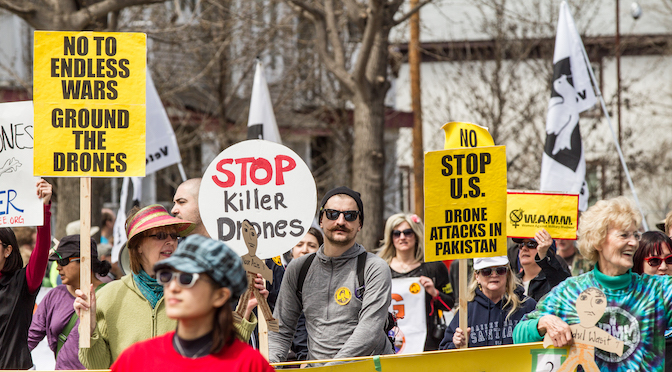Paul Lushenko considers how Mitt Regan’s book Drone Strike: Analyzing the Impacts of Targeted Killing [see also Regan’s article in this volume] informs the national security community’s understanding of the public’s perceptions of legitimate drone strikes. Lushenko explains that Regan, in evaluating the effectiveness of the post-9/11 US drone program, raises an important question about the implications of public opinion for the sustainability of US counterterrorism strikes and similar operations conducted by other countries.
Lushenko argues that where most researchers understand public attitudes in terms of support and approval, Regan’s analysis suggests that perceptions of legitimacy are equally, if not more important for countries’ drone policies. While scholars, policymakers, and practitioners often reference legitimacy, they rarely, if ever, empirically evaluate this outcome, Lushenko argues.
After outlining the literature for public opinion and drone warfare, Lushenko evaluates and incorporates Regan’s insights on public opinions of drone strike “legitimacy” into an emerging research agenda that defines drone warfare based on countries’ use and constraint of strikes to prevent unintended consequences, namely civilian casualties.
Lushenko concludes that unlike qualitative studies that are difficult to falsify, replicate, and generalize, his proposed approach allows researchers to analyze empirically derived data using statistical methods to determine the public’s subjective beliefs on appropriate strikes.

